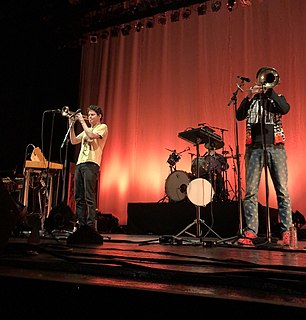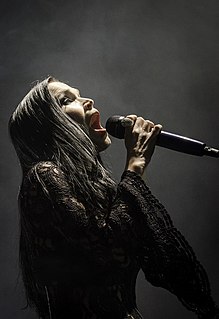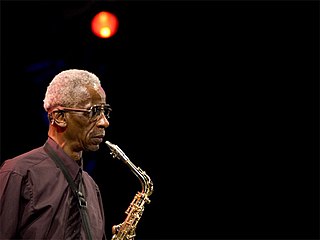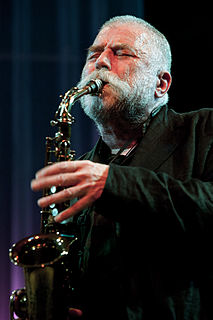A Quote by Zach Condon
I think that within the world of music that we work in, which is so not perfect, I think that you really do have to learn to accept your own mistakes as part of the beauty of music itself.
Related Quotes
Some guys that know me from when I was a kid say "My son, oh he's just like your father." It's just a natural part of our lives. But, within the music industry and within the industry of the critiques of music, where it becomes "Ziggy's music is not as good as Bob's music," I don't understand. But I don't really pay much attention to that because I'm just expressing myself.
And if you look around, if you listen to some music nowdays, I'm not so optimistic...I have the feeling that some of the young people I've met they think already, before they start playing, they think already about the product: how can we sell it....maybe my view is really very old fashioned nowadays, but I think art at any times needs time for development and this fast food bullshit is not working... younger guys: take your time, music is really a thing of long terms, actually it's a lifelong thing to learn and to develop your own stuff.
I think I'm really part of a whole generational movement in a way. I think a lot of other people since and during this time have gotten interested in writing what we can still call experimental music. It's not commercial music. And it's really a concert music, but a concert music for our time. And wanting to find the audience, because we've discovered the audience is really there. Those became really clear with Einstein on the Beach.
I have an idea that the only thing which makes it possible to regard this world we live in without disgust is the beauty which now and then men create out of the chaos. The pictures they paint, the music they compose, the books they write, and the lives they lead. Of all these the richest in beauty is the beautiful life. That is the perfect work of art.
Yet how strange a thing is the beauty of music! The brief beauty that the player brings into being transforms a given period of time into pure continuance; it is certain never to be repeated; like the existence of dayflies and other such short-lived creatures, beauty is a perfect abstraction and creation of life itself. Nothing is so similar to life as music.
I find that the quest to be perfect and make perfect music is like a black whole. I realize that you can come with the intention to capture a vibe and use a formula, but you have to accept that most of the time its not going to be what you envisioned and you might manifest something better. I think that's been the hardest thing to wrap my head around that most ideas we go for ends up sounding different. I think art in general should be about enjoying the process and the experience. All that matters is if you feel the music and it captures the element your going for.
I call this my church house trilogy. Souls' Chapel really was music from the Mississippi Delta, which to me is a church within itself. The Delta is the church of American Roots music. The Badlands is a cathedral without a top on it. And the Ryman has been called the Mother Church of Country Music, but to me it's the Mother Church of American Music. If you can think it up, it's been done there. In my mind, this is kind of a spiritual odyssey as much as anything else, and I had the settings of three churches to make it in.
Thinking about making a love story without music was really frightening, Sciamma admitted. Because every love story we know, we think about 'Titanic' we think about the music, we think about 'Gone with the Wind' we think about the music, we think about 'E.T.' we think about the music, and every love story has its own tune, 'That's our song.'
As a songwriter, you tend to develop your own style, your own technique, based around what it is you're trying to write and perform, in terms of your own music. So a way of evolving a guitar style as a songwriter is much easier, I think, than developing a true style of your own just from listening to music or playing other people's music.






































